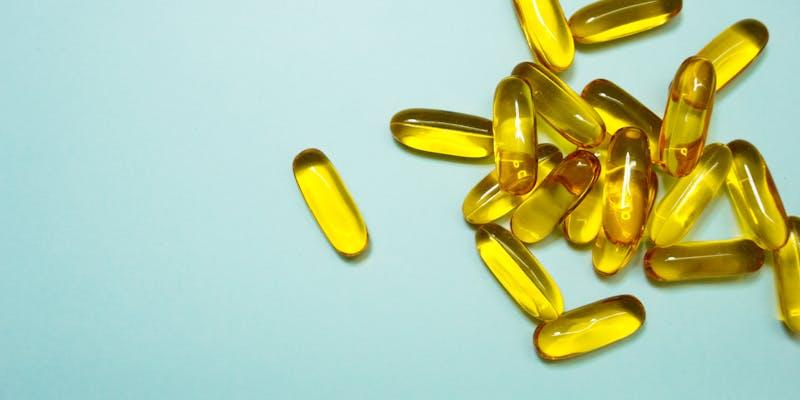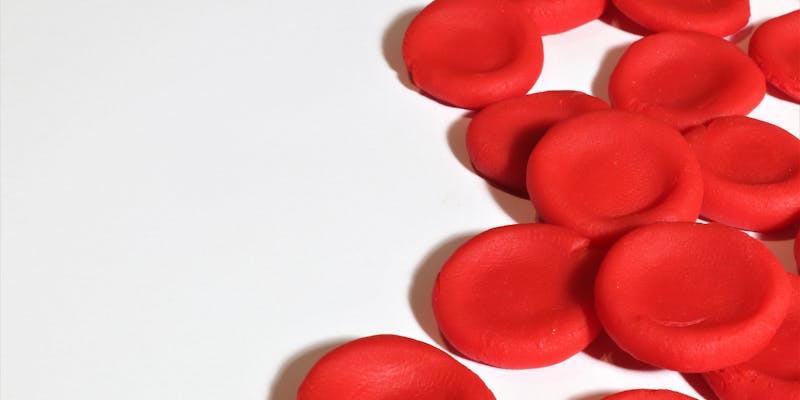Can Patients with Gout use Fish Oil Capsules Without Risk?
Mar 28, 2024 By Nancy Miller
In gout, minimal crystal deposition occurs within the joints of individuals; it is a form of arthritis resulting in excruciating pain, inflammation, and swelling. The potential symptomatic relief of specific manifestations of gout caused by the omega-3 fatty acids present in tuna fish oil capsules is uncommon yet exists.
Anchovy fish oils are extracted from salmon, mackerel, tuna, herring, sardines, and trout. These foods are rich in omega-3s, and vitamins A and D. Anchovy fish oil and omega-3 supplements are widely used for their health benefits. According to the ACC/AHA, fish consumption improves cardiovascular health. Omega-3-rich foods may also reduce metabolic disease risk, protect the eyes and brain, and enhance fetal development. However, the contradictory results of the supplement effectiveness studies confuse many people.
Symptoms Of Gout

Gout symptoms are very distinguished, so if you see anyone or yourself with these symptoms, take that person to the doctor to check.
- Uric acid excess in the blood does not necessarily manifest in all individuals as a symptom. Blood urea concentrations increase imperceptibly under these circumstances.
- The acute onset of gout symptoms, which may persist for three to ten days, can be attributed to the rapid accumulation of uric acid crystals within a joint.
- A considerable amount of swelling and agony will accompany the joint's possible sensation of heat. Intermittent episodes of gout will not manifest any symptoms.
- Without appropriate treatment, gout may progress to a chronic state. Your joints and surrounding skin and soft tissue may eventually develop tophi, which are hard, solid masses. These deposits can cause persistent damage to joints.
Role Of Fish Oil in Gout Management
The omega-3 fatty acid consumption of numerous Americans is significantly deficient compared to the amount of omega-6 fats they consume. This imbalance has the potential to induce a heightened state of inflammation. Because gout is distinguished by intense joint pain, inflammation, and swelling, it is an essential symptom that requires effective management.
As a result, fish oil is employed in this circumstance. Omega-3 fatty acids may be supplemented with tuna fish oil and increased intake of omega-3 fatty acids. Ensuring this balance is preserved is critical due to its ability to reduce inflammation, consequently alleviating the unique joint pain and complications associated with gout. Fish oil capsules and increased consumption of omega-3 fatty acids are simple ways to reduce inflammation.
Research endeavors to increase the proportion of omega-6 to omega-3 fatty acids. Attainment of this equilibrium will enhance the immune system's capability to counter inflammation; consequently, some symptoms commonly associated with gout will be mitigated. Thus, intentionally supplementing with omega-3 fatty acids may have a significant impact despite the typical American diet not naturally promoting this equilibrium.
Fish Oil and Purines
A minor concern that emerges when contemplating the application of fish oil as a remedy for gout is the potential presence of purines. Fatty fish is an example of a food item known to contain purines. It is commonly employed in the manufacturing process of fish oil. An overabundance of uric acid, produced during the digestion of purines, is one of the most severe complications that can result from gout. Uric acid is the egress of the irritating crystals in your joints.
Thankfully, purines are not prevalent in high-quality, pure anchovy fish oil. The processing method of fish oil is critical. Low-purine fish oil will not worsen the symptoms of gout. It is possible to acquire the advantages of a superior fish oil supplement while reducing the likelihood of uric acid buildup. Ensure that the tuna fish oil you prepare to purchase is of the highest quality to prevent any complications.
Special Considerations For Gout Diet

Gout, or gouty arthritis, affects one joint at a time but causes manageable pain. Uric acid is produced by purines in food and the body. People with gout should avoid purines, which the body uses to eliminate uric acid.
Consideration#1: Rethinking Your Drink Choices
Due to its high purine content, beer should be consumed moderately. According to the research, men who drink heavily every day are twice as likely to get gout. Gout may be delayed by purines raising blood uric acid levels. Drinking liquor moderately or not at all may help prevent gout. Drinking water, herbal teas, and non-carbonated beverages does not increase uric acid. Drinking more water and eating fewer calories improves health and decreases gout risk.
Consideration#2: Modifying Your Meat and Fish Intake
Gout sufferers should limit certain meat and seafood but must always consider anchovy fish oils. Never consume organ meats, purine, sardines, anchovies, or kidneys. Avoid eating more than three ounces of meat daily to lower uric acid. Gout may be prevented by eating a balanced diet of lean meats, poultry, and plant protein. Increasing fruit and whole grain intake may improve health. A heart-healthy diet with lean meats and seafood may help control gout.
Consideration#3: Selecting Low-Purine Vegetables and Beans
Most vegetables and beans are healthy, but gout sufferers should limit their purine intake. This category includes chickpeas, lentils, and beans. Use low-purine ingredients to lower uric acid. Various legumes and vegetables can provide nutrients without compromising your nutritional profile. Colorful, antioxidant-rich vegetables may lower uric acid and improve health. Vitamins and minerals are added to these veggies.
Consideration#4: Cutting Down on Fatty Foods
To filter uric acid and function correctly, the kidneys must avoid greasy meals, including rich desserts, ice cream, and sauces. Fat-free or low-fat options transform gout management. Eating nutrient-dense, unprocessed foods, including complex carbohydrates, lean proteins, and fresh fruit, may improve uric acid tolerance and diet. A diet change alongside intake of oil capsules may help control gout symptoms, lose weight, and improve cardiovascular health.
Consideration#5: Being Cautious with Certain Medications
Gout symptoms may worsen with phenazine diuretics, which impede kidney uric acid excretion. If you have gout or are at risk, talk to your doctor about alternate medications and oil capsules. Gout treatment may have safe, effective alternatives. Consult your doctor before changing your medication routine. Keeping in touch with one's doctor may help prevent gout episodes.







